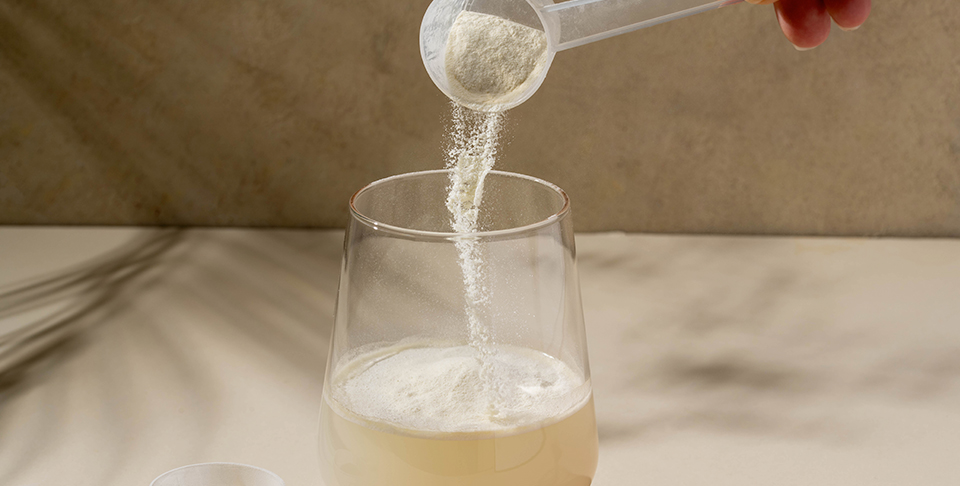Free Shipping - 48hrs Only | Use Code: FREESHIP
Ends 26/04 11:59PM AEST Min spend $79

Quick Summary
- Overview of Carnitine: Explains Carnitine's role in health and fitness, highlighting its importance in the body.
- Carnitine Basics: Discusses what Carnitine is, its natural dietary sources, and its function in energy metabolism.
- Supplemental Forms: Compares different forms of Carnitine supplements like L-Carnitine, Acetyl-L-Carnitine, and Propionyl-L-Carnitine.
- Carnitine in the Body: Details how Carnitine transports fatty acids and supports mitochondrial function and muscle health.
- Health Benefits: Outlines Carnitine's benefits for heart, brain health, and overall wellbeing.
- Fat Loss and Carnitine: Examines Carnitine's role in fat metabolism and its potential in aiding weight loss.
- Performance Enhancement: Describes how Carnitine benefits both aerobic and anaerobic physical performance.
- Enhanced Recovery: Highlights Carnitine's effectiveness in reducing muscle soreness and improving recovery times.
- Absorption and Dosing: Provides tips on enhancing Carnitine absorption and recommends dosages for various health goals.
- Safety and Considerations: Discusses the safety profile of Carnitine, possible side effects, and special considerations for different groups.
I. Introduction
Carnitine, a nutrient synthesized in the body and consumed through various dietary sources, plays a pivotal role in energy production. It is particularly crucial for athletes, fitness enthusiasts, and individuals seeking improved health and weight management. This guide provides a comprehensive overview of Carnitine, exploring its forms, functions, benefits, and practical applications in supplementation.
II. Carnitine Basics
Carnitine, a quaternary ammonium compound, is instrumental in transporting fatty acids into mitochondria, the powerhouses of cells. While the body produces Carnitine naturally, it is also found in foods like red meat, dairy products, and avocados. In energy metabolism, Carnitine serves as a critical player, facilitating the burning of fats for fuel, which is vital for sustained energy during exercise and daily activities.
III. Supplemental Forms of Carnitine
The supplement market offers various forms of Carnitine, each with unique characteristics and benefits. L-carnitine, the most common form, supports overall health and energy production. Acetyl-L-Carnitine, known for its neuroprotective properties, aids in cognitive function. Propionyl-L-Carnitine, beneficial for cardiovascular health, improves blood flow and exercise performance. Understanding these distinctions is key to selecting the right supplement for individual needs.
IV. Carnitine’s Function in the Body
Carnitine's primary function is to escort long-chain fatty acids into mitochondria, where they are oxidized for energy production. This process is vital for maintaining healthy muscle function and overall energy levels. Additionally, Carnitine has a role in reducing muscle soreness and enhancing recovery after exercise, making it a popular supplement among athletes and fitness enthusiasts.
V. Carnitine Benefits
The benefits of Carnitine are vast and varied. For general health, it's known to improve energy levels and potentially support heart and brain health. Cardiovascular benefits include improved blood flow and reduced symptoms of angina and heart failure. Neurologically, Carnitine can enhance cognitive function and may offer protective benefits against neurodegenerative diseases.
VI. Carnitine & Fat Loss
In the context of weight management and fat loss, Carnitine plays a crucial role. It assists in transporting fatty acids into cells for energy production, potentially aiding fat-burning and weight-loss efforts. Studies have shown mixed results, but some evidence suggests that when combined with exercise and a healthy diet, Carnitine supplementation can contribute to fat loss.
VII. Carnitine’s Aerobic & Anaerobic Benefits
Carnitine's impact on physical performance is significant in both aerobic and anaerobic activities. Aerobically, it helps enhance endurance by improving energy production from fats, ideal for long-duration exercises. In anaerobic activities, like weight lifting, it may help reduce fatigue and improve recovery, allowing for more intense and frequent training sessions.
VIII. Carnitine & Enhanced Recovery
One of the most appreciated effects of Carnitine is its ability to enhance recovery. This is due to its role in reducing muscle damage and lowering levels of lactic acid and other metabolic wastes during and after exercise. This leads to a decrease in muscle soreness and faster recovery times, crucial for athletes and active individuals.
IX. Combining L-Carnitine with Other Supplements
For those looking to maximize the benefits of Carnitine, combining it with other supplements can be effective. For example, pairing it with thermogenic fat burners may enhance fat metabolism, while combining it with carbohydrates can increase its uptake and improve energy levels. Carnitine is generally considered safe to be combined with most other nutritional and dietary supplements when taken as directed.
X. How to Enhance Carnitine Absorption
Maximizing Carnitine absorption is key to reaping its benefits. This can be achieved through dietary strategies, such as consuming Carnitine with meals rich in carbohydrates and proteins. Certain nutrients, like vitamin C, are known to enhance Carnitine absorption, so including them in your diet or supplement regimen can be beneficial.
XI. Recommended Carnitine Dosing
The optimal dosage of Carnitine varies depending on individual goals and needs. For general health and energy, doses ranging from 500 to 2,000 mg per day are common. For specific goals like fat loss or performance enhancement, dosing may vary, and it's important to consider factors like body weight and activity level. Always start with a lower dose to assess tolerance and gradually increase as needed.
XII. Popular L-Carnitine Supplements in Australia
In Australia, supplements like Gen-Tec L-Carninine and Musashi Carnitine are popular choices. These products are known for their quality and are manufactured in FSANZ and TGA-approved facilities, ensuring high standards. When choosing a Carnitine supplement, it's crucial to consider factors like form, dosage, and brand reputation.
XIII. Safety and Side Effects of Carnitine
Generally, Carnitine is considered safe for most people when used appropriately. However, potential side effects like nausea, stomach upset, and diarrhea can occur. It's important to adhere to recommended dosages and consult with a healthcare provider, especially for those with preexisting conditions or those taking medications.
XIV. Carnitine in Special Populations
Special considerations should be taken for different populations. Athletes may benefit from higher doses for performance enhancement, while the elderly might use Carnitine for cognitive and heart health. People with chronic health conditions should consult with healthcare providers to understand the best approach to Carnitine supplementation.
XV. Conclusion
Carnitine offers a range of health and performance benefits, making it a valuable supplement for various goals. Understanding its functions, benefits, and the best ways to incorporate it into your regimen can help maximize its effects. As with any supplement, it's important to approach Carnitine use thoughtfully and in consultation with health professionals.
XVI. References
1 Villani RG, Gannon J, Self M, Rich PA. L-Carnitine supplementation combined with aerobic training does not promote weight loss in moderately obese women. Int J Sport Nutr Exerc Metab. 2000;10(2):199-207.
2 Karlic H, Lohninger A. Supplementation of L-carnitine in athletes: does it make sense? Nutrition. 2004;20(7-8):709-715.
3 Giamberardino MA, Dragani L, Valente R,et al. Effects of prolonged L-carnitine administration on delayed muscle pain and CK release after eccentric effort. Int J Sports Med. 1996;17(5):320-324.
4 Volek JS, Kraemer WJ, Rubin MR, et al. L-carnitine L-tartrate supplementation favourably affects markers of recovery from exercise stress. Am J Physiol Endocrinol Metab. 2002;282:E474–E482.
5 Kraemer WJ, Volek JS, French DN, et al. The effects of L-carnitine L-tartrate supplementation on hormonal responses to resistance exercise and recovery. J Strength Cond Res. 2003;17(3):455-462. 2003
6 Ho JY, Kraemer WJ, Volek JS, et al. L-carnitine L-tartrate supplementation favorably affects biochemical markers of recovery from physical exertion in middle-aged men and women. Metabolism Clinical and Experimental. 2010;59:1190–1199.
7 Kraemer WJ, Spiering BA, Volek JS, et al. Androgenic responses to resistance exercise: effects of feeding and L-carnitine. Medicine & Science in Sports & Exercise. 2006;38(7):1288-1296.
8 Spiering BA, Kraemer WJ, Hatfield DL, et al. Effects of L-carnitine L- tartrate supplementation on muscle oxygenation responses to resistance exercise. J Strength Cond Res. 2008;22(4):1130-1135.
9 Speiring BA, Kraemer WJ, Vingren JL, et al. Responses of criterion variables to different supplemental doses of L-carnitine L-tartrate. J Strength Cond Res. 2007;21(1):259–264.
10 Stephens FB, Constantin-Teodosiu D, Laithwaite D, et al. Insulin stimulates L-carnitine accumulation in human skeletal muscle. FASEB J. 2006;20(2):377-379.
11 Stephens FB, Constantin-Teodosiu D, Laithwaite D, et al. An acute increase in skeletal muscle carnitine content alters fuel metabolism in resting human skeletal muscle. J Clin Endocrinol Metab. 2006;91(12):5013-5018.
12 Stephens FB, Evans CE, Constantin-Teodosiu D, et al. Carbohydrate ingestion augments L-carnitine retention in humans. J Appl Physiol. 2007;102(3):1065-1070.
13 Stephens FB, Constantin-Teodosiu D, Laithwaite D, et al. A threshold exists for the stimulatory effect of insulin on plasma L-carnitine clearance in humans. Am J Physiol Endocrinol Metab. 2007;292(2):E637-E641.
14 Wall BT, Stephens FB, Constantin-Teodosiu D, et al. Chronic oral ingestion of L-carnitine and carbohydrate increases muscle carnitine content and alters muscle fuel metabolism during exercise in humans. J Physiol. 2011;589(Pt4):963-973.


